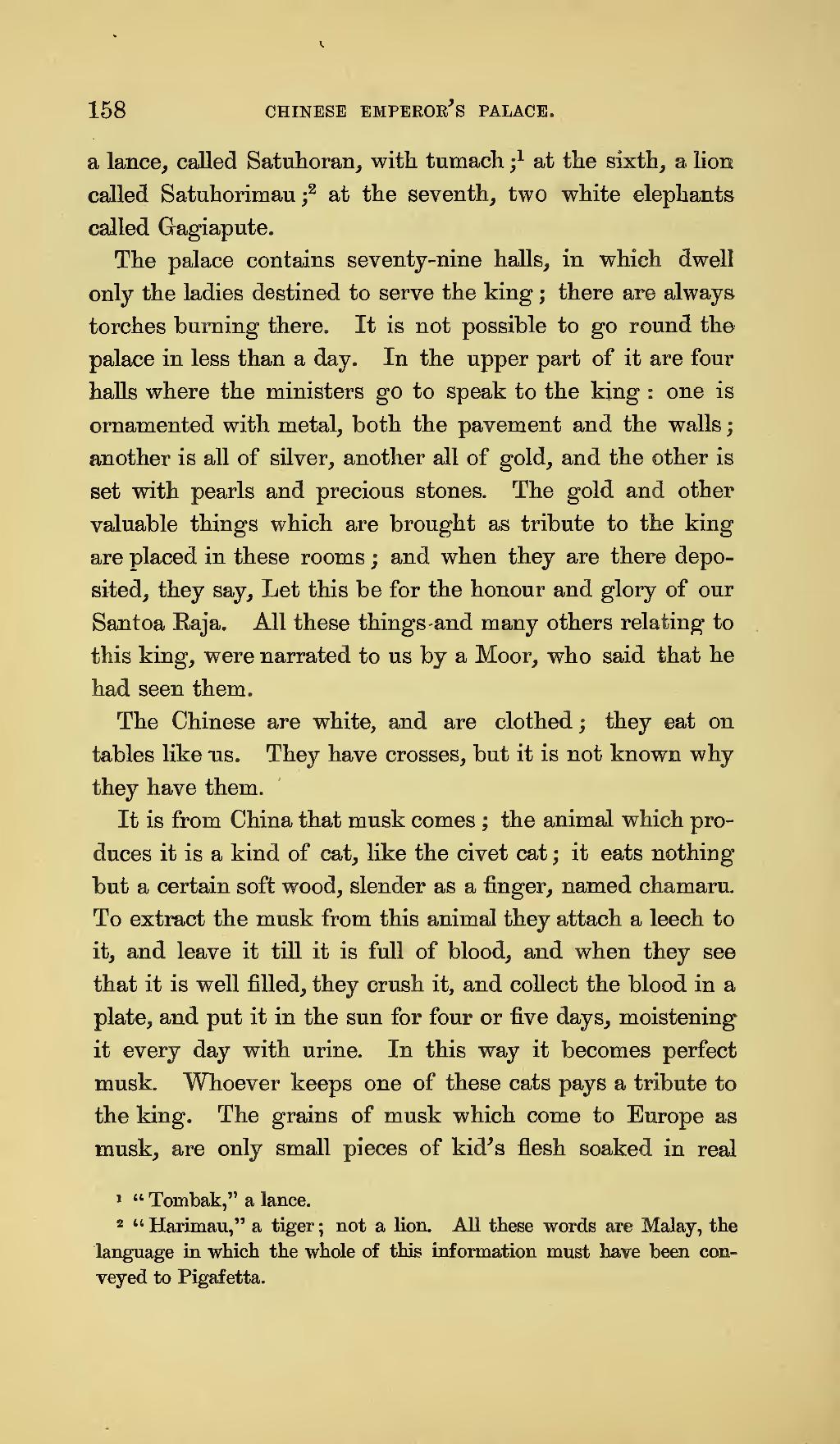a lance, called Satuhoran, with tumach;[1] at the sixth, a lion called Satuhorimau;[2] at the seventh, two white elephants called Gagiapute.
The palace contains seventy-nine halls, in which dwell only the ladies destined to serve the king; there are always torches burning there. It is not possible to go round the palace in less than a day. In the upper part of it are four halls where the ministers go to speak to the king: one is ornamented with metal, both the pavement and the walls; another is all of silver, another all of gold, and the other is set with pearls and precious stones. The gold and other valuable things which are brought as tribute to the king are placed in these rooms; and when they are there deposited, they say, Let this be for the honour and glory of our Santoa Raja. All these things and many others relating to this king, were narrated to us by a Moor, who said that he had seen them.
The Chinese are white, and are clothed; they eat on tables like us. They have crosses, but it is not known why they have them.
It is from China that musk comes; the animal which produces it is a kind of cat, like the civet cat; it eats nothing but a certain soft wood, slender as a finger, named chamaru. To extract the musk from this animal they attach a leech to it, and leave it till it is full of blood, and when they see that it is well filled, they crush it, and collect the blood in a plate, and put it in the sun for four or five days, moistening it every day with urine. In this way it becomes perfect musk. Whoever keeps one of these cats pays a tribute to the king. The grains of musk which come to Europe as musk, are only small pieces of kid's flesh soaked in real
